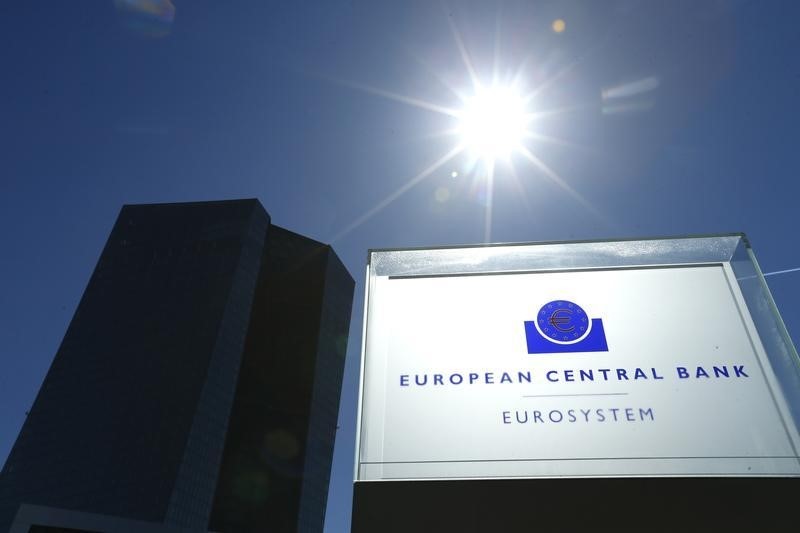FRANKFURT (Reuters) - The European Central Bank backed plans on Monday for a common means to protect savers, setting it on course for another collision with Germany over a scheme Berlin has so far blocked.
After the financial crash, the ECB took charge of bank supervision across the 19 countries in the euro zone as part of wider reforms known as 'banking union' to make the sector safer.
A parallel plan for pan-euro zone deposit protection, however, has yet to get off the ground, chiefly due to opposition from Germany, which does not want to be on the hook for bank failures elsewhere.
On Monday, the ECB appealed for the introduction of common deposit protection as set out in plans from the EU's executive European Commission.
It would eventually replace the current country-by-country patchwork and help stop a repeat of the bank runs seen during the financial crisis.
In a legal opinion to European ministers signed by its President Mario Draghi, the ECB argued that "establishing a common safety net for depositors at the European level is the logical complement" to ECB supervision.
"A European Deposit Insurance Scheme is the necessary third pillar to complete the Banking Union," the letter said. The first 'pillar' is banking supervision and the second is resolution, a scheme for winding banks down.
The call again puts the ECB at odds with Germany, where politicians including Finance Minister Wolfgang Schaeuble have stepped up criticism of its cheap money policy.
Schaeuble was even reported as blaming the ECB's stance in part for the rise of the right-wing, anti-immigration Alternative for Germany (AfD).
Although influential, the ECB's opinion is not binding and may be ignored by the ministers.

Before it becomes law, such saver protection would require approval from euro zone countries, including Germany - unlikely for now.